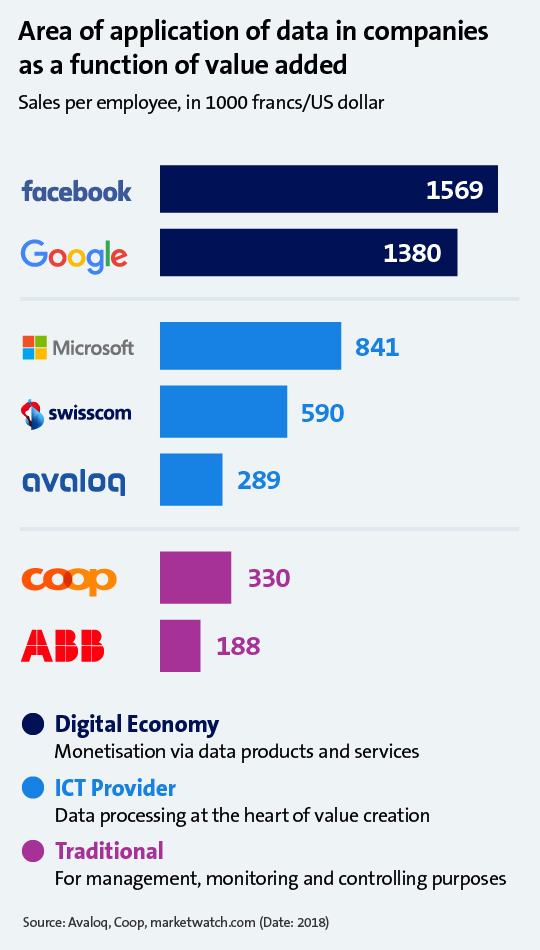Data-driven business
The fuel for the business of the future
Data is an important tool for optimising internal processes, creating new customer experiences and developing new business models. Every company can become a “data-driven business”.
Text: Christoph Widmer,
Digitisation is increasing competitive pressure. This is the outcome of a recent study by the Bitkom trade association, for which more than 600 German companies from all sectors were surveyed. Two-thirds of companies say that IT and Internet companies are entering their market; 60% of respondents see that companies in other industries are suddenly becoming direct competitors as a result of digitisation. And 42% of the study participants admit that those competitors from their own industry who tackled digitisation at an early stage are ahead of them today.
In this highly competitive market, company data is becoming increasingly important – “data driven” is the keyword. “In particular, those companies that feel an increased pressure in their value creation are thinking about data-driven business models,” explains Michele Savino, Business Analyst Marketing & Digital Interaction at Swisscom. “The manufacturing sector, among others, is strongly affected, as it is exposed to international competition that is very price sensitive.” The successful handling of one’s own company data is therefore a decisive competitive factor for companies. Machine data, marketing information or HR data, which today are accumulated in large quantities thanks to digital technologies, serve as the basis for companies to introduce internal process optimisations, improved customer experiences and new business models – but only if they are placed at the centre of their own value creation. Three areas of application can be distinguished here:
- Data as a basis for management, monitoring and controlling: data supports better decision-making. “Not only the quantity, but also the variety and availability of the data is strongly increasing due to digitisation,” explains Martin Gutmann, Head of Analytics & Data Consulting. “Thanks to data evaluations, numerous company departments can, for example, identify new significances and thus obtain a fact-based basis for decision-making. This makes gut decisions a thing of the past.”
- Automation through data processing: with the digitisation of business processes, data processing is automated. For software providers, ICT providers and platform providers especially, the added value of data lies in its storage, transport, processing and protection.
- Monetisation through new business models: the highest form of data-driven business: the digital economy uses personalised data to offer new, customised services and products and to create a unique customer experience. Monetisation takes place by offering data products. Companies such as Apple (e.g. Apple Music), Facebook (Facebook Ads), Amazon (e.g. AWS) and Uber (digital platform for drivers and passengers) have established themselves in the market as providers of data products.

Area of application of data in companies
“Data driven” can be achieved in every company
Any company can become data driven – without having to develop data products as a new business model. Martin Gutmann gives two examples: “The cash register system of a small shop can already provide information about when the most is sold and which articles are really profitable. In the HR sector, on the other hand, digitally submitted application dossiers allow samples of successful applications to be identified. With appropriate evaluation and AI tools, large amounts of data can usually be processed that are confusing for people.” Many companies are already making use of such retroactive data analyses. In the next step, however, data is even used with foresight: algorithms can be used to forecast the occurrence of future events. For example, predictive maintenance allows companies to predict maintenance work on machines based on collected measurement and production data – and to act proactively. “This is where the real added value of data lies: it gives companies an information advantage,” Savino comments. “The collection of data is done relatively quickly. The question is what to do with the data.”
For Savino, the greatest challenge is having to manage the company on its way to becoming a data-driven business: “Companies need to ask themselves where they will be in three to five years’ time and who their customers will be in future. If the customers change, then it is likely that the business processes will also change as well as the company’s own value creation. Companies must find out how they can use their data to master this change.”

Newsletter
Would you like to regularly receive interesting articles and whitepapers on current ICT topics?
More on the topic


